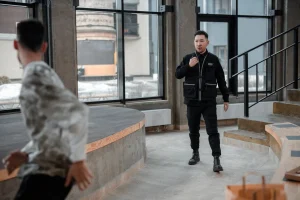Most Common Types Of Security Guards And Their Responsibilities

Most Common Types Of Security Guards And Their Responsibilities
There are many types of security guards. Patronized Guards / In-Home Guards
These are guards you can hire to work directly for you. You can contract them to help at your place of business or home. Many times, larger corporations with the right resource infrastructure will prefer this option. In most cases, however, contract security guards to help at homes or businesses are more common.
The most popular type of security guard is the hired armed guard. While armed security personnel can be more costly than others, they are more likely to have access to the best equipment. Armed guards are often available 24 hours per day. They can handle any situation and are not restricted to specific tasks. This makes hiring a hired armed guard preferable for businesses and non-businesses alike.
There are four types of retail security guards Melbourne available: commissioned, reserve, fire watch, and private. Most police and reserve security guards can be commissioned by a sworn officer from the local law enforcement office. Most reserve police guards work on a contract basis through a particular employer. Private security guards and fire watch guards generally work on a contract basis through private security companies.
Commissioned police security guards are commissioned directly by a police chief. The same police department can also commission reserve security guards. Both commissioned security guards and reserve guards are trained in specific areas of law enforcement. They are expected to be efficient and effective in their jobs. They are responsible for the arrest of criminals and other duties.
Businesses and individuals may employ private security guards. Generally, they work independently. They are often part of a larger company, or part of a monitoring network. A monitoring system provides protection and security for an office or home. Security guards are usually responsible for protecting the property of an employer.
Street security officers are also an integral part of civil safety. Security officers are assigned to patrol streets and intersections in most American cities. Security officers are responsible for investigating crimes, making arrests and conducting sting operations. Before being assigned to a job, many jurisdictions require security officers undergo criminal justice training.
As you can see, security guards are classified into one of two main categories: surveillance or deterrence. Surveillance personnel watch for potential threats or suspicious activity. Deterrent personnel are there to protect you from such attacks. Regardless of which security guard you choose to be your representative, make sure that your character, integrity, and training are up to par. You will have a great deal to protect, and a great deal to uphold if you find yourself in a position of responsibility.
Traffic enforcement, protecting public property, and tracking down terrorists are just a few examples of security guard responsibilities. Some of these positions require extensive background investigation on potential employees or supervision. Some security employers will perform background searches as a precondition to employment.
To be a security guard you must be in good physical and mental health. Some guards have multiple duties. They may be responsible for monitoring electrical safety and welfare, or overseeing general safety in a place. Some guards work in pairs to prevent violence or crime from occurring.
A professional security guard should always dress professionally. Proper attire includes: dark pants, long-sleeved shirt, closed-toed shoes, protective gloves, safety glasses, and carrying a gun legally. You must be able to move around the job at all times. To protect themselves from an altercation, some guards may use pepper spray, stun guns, or other self-defense weapons. In order to qualify for employment as a security guard in any jurisdiction, you must be 18 years of age or older and have a clean record with no complaints against you.
Most security guards get paid hourly. Employers may pay their employees through commissions. This means that some, if not all, of your paycheck will be paid to the employer. Other employers may pay their employees via yearly wages or monthly salaries. The average person who is paid through commissions is more experienced than someone who gets an annual salary. Security guard jobs are highly competitive and many people aspire to become guards.


